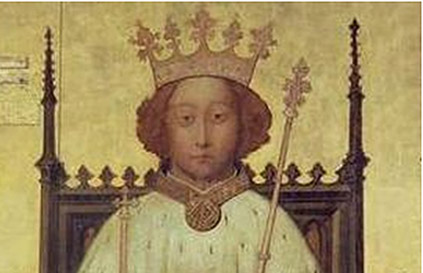HIU34008 Kingship, Tyranny and Revolution: the Age of Richard II

- Module Coordinator:
- Dr Peter Crooks
- Duration:
- All year
- Contact Hours:
- 3 hours per week
- Weighting:
- 20 ECTS
- Assessment:
- 40% essay, 60% examination
Through weekly seminar discussions, members of the class will learn to assess the significance of the reign based a close reading of selected texts. We will also explore a range of other records and narratives, as well as the verse of some of England's most famous medieval poets, many of whom (notably Geoffrey Chaucer) were closely connected to the court of Richard II. The module falls into two parts. Part 1 investigates political developments from the dying days of Edward III through the Peasant's revolt (1381) to Richard II's final years of 'tyranny' (1397-9). Part 2 adopts a thematic approach. Topics here include parliament, political society, heresy, the war with France, chivalry, and courtliness. We conclude by examining the revolution of 1399, which resulted in the Richard II's deposition and death, and the succession of Henry Bolingbroke as the first of the Lancastrian kings.
Learning Outcomes:
On successful completion of this module students should be able to:
- Recognize the principal developments in English politics, society and culture in the age of Richard II
- Identify and contextualize the main interpretative trends and problems identified in historical writing on the period
- Engage with wider theoretical frameworks and debate the merits of key historical concepts applying to medieval English history
- Undertake an advanced analysis of a wide range of relevant primary sources
- Critique relevant historiography in the light of these sources
- Provide an individual synthesis based on a reading of primary and secondary sources
- Defend such a synthesis in written and oral presentations.
- Synthesize the main historiographical interpretations and interpret them against a range of primary sources.

